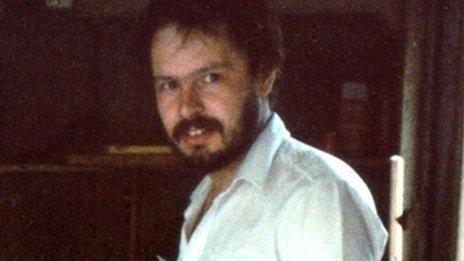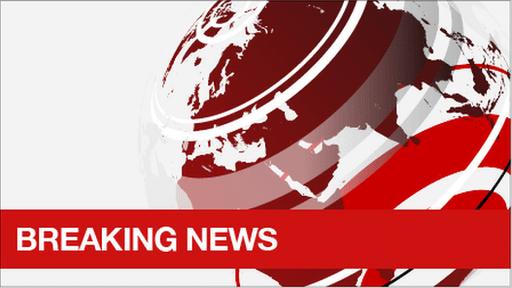Daniel Morgan murder: Inquiry to examine 'police corruption'
- Published
Alastair Morgan: "I made a promise to expose the corruption"
An independent inquiry is to review the police handling of the unsolved murder of private investigator Daniel Morgan, the Home Office has announced.
He was found with an axe in his head in a south London pub car park in 1987.
An independent, judge-led panel of experts, external will now examine claims police corruption prevented a conviction, despite five investigations.
Home Secretary Theresa May said the Hillsborough-style inquiry would "shine a light" on the case.
'Learning from Hillsborough'
Former Court of Appeal judge Sir Stanley Burnton will chair the independent panel, which will examine possible police involvement in the murder, allegations of police corruption during various investigations, and connections between private investigators, police officers and journalists - including those from the now-closed News of the World.
The panel will have access to a vast archive of documents collected by police and will pass its findings to Mr Morgan's family before publishing a report.
BBC home affairs correspondent Tom Symonds said its terms of reference were likely to focus on informing public understanding of the case, rather than re-investigating the evidence - although any new leads would be followed up by Scotland Yard.
In a statement released on Friday, Mrs May acknowledged that there was "no likelihood of any successful prosecutions being brought in the foreseeable future", but that the Daniel Morgan independent panel would "shine a light" on the circumstances of his murder and the handling of the case.
She stressed the Metropolitan Police had already "admitted that police corruption was a 'debilitating factor' in the original investigation".
"Several criminal investigations failed to bring those responsible to justice and this independent panel will leave no stone unturned to find out why," she said.
"Importantly, the panel's work will put Mr Morgan's family at the centre of the process and the approach to this issue has the support of the MPS Commissioner and the Independent Police Complaints Commission."
"The panel will utilise learning from the Hillsborough Independent Panel process in addressing how to approach its work," she added.
'Mental torture'
Mr Morgan's family welcomed the move to investigate the handling of the case, which they said had been "crippled with corruption".
His brother, Alastair, said the family had endured "nothing less than mental torture" in trying to bring this to light, adding: "Through almost three decades of public protests, meetings with police officers at the highest ranks, lobbying of politicians, and pleas to the media, we have found ourselves lied to, fobbed off, bullied, degraded and let down time and time again."
He went on to say they had "witnessed a complete unwillingness by police and successive governments to face up to what was occurring, and ultimately a complete failure by police leadership to deal effectively with serious police criminality".
"We trust and hope that the panel - through its examination and publication of all relevant material and information - will assist the authorities to confront and acknowledge this failure for once and for all, so that we may at last be able to get on with our lives," he said.
Mr Morgan's family believe he was on the verge of exposing police corruption when he was murdered. Since then they have campaigned for whoever killed him to be brought to justice.
The body of Mr Morgan, originally from Llanfrechfa, near Cwmbran, Torfaen, was found in Sydenham, south-east London, in 1987.
A trial of four men charged with his murder in 2008 collapsed in 2011, following alleged failures by the police and prosecutors.
Mr Morgan's mother Isobel Hulsmann, from Hay-on-Wye in Powys, met Mrs May at the end of 2011 to press the case.
- Published10 May 2013

- Published8 May 2013

- Published21 May 2012

- Published19 June 2021
- Published29 February 2012

- Published6 December 2011

- Published11 March 2011
